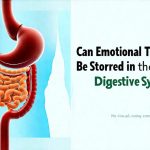The intricate connection between our emotional state and physical wellbeing is increasingly recognized in modern healthcare. For years, we’ve understood stress can lead to headaches or muscle tension, but the depth of influence emotions have on our internal systems – particularly the digestive system – is now becoming strikingly apparent. Many individuals experiencing unresolved emotional trauma find themselves battling chronic digestive issues that don’t respond well to conventional treatments. This isn’t necessarily a coincidence; it reflects the powerful gut-brain axis, a bidirectional communication network linking these two seemingly disparate parts of the body. Understanding this link can be crucial for holistic healing and addressing persistent digestive discomfort.
Emotional trauma, encompassing a wide range of distressing experiences from childhood adversity to acute events like accidents or loss, fundamentally alters our physiological stress response. When we experience trauma, the nervous system shifts into high alert, prioritizing survival over non-essential functions such as digestion. This prolonged activation can disrupt normal gut motility, nutrient absorption, and even the delicate balance of the gut microbiome – the community of trillions of microorganisms residing in our digestive tract. It’s important to note that trauma manifests differently in everyone, meaning there’s no one-size-fits-all presentation, but recognizing potential links is a vital first step towards improved health. You may also want to learn about can emotional trauma and its effects on the digestive system.
The Gut-Brain Axis: A Two-Way Street
The gut and brain are connected through several pathways collectively known as the gut-brain axis. This isn’t simply a metaphorical connection; it’s a complex physiological system involving neural, hormonal, and immunological signaling. – The vagus nerve is a major component, acting as a direct communication line between the gut and brain. – Neurotransmitters like serotonin (often called the “happiness hormone”) are largely produced in the gut and influence mood and digestive function. – The immune system plays a critical role, as inflammation in the gut can impact brain health and vice versa.
When emotional trauma occurs, it often leads to chronic activation of the hypothalamic-pituitary-adrenal (HPA) axis – our body’s central stress response system. This constant state of alert impacts gut function significantly. For instance, prolonged cortisol release (a key stress hormone) can weaken the digestive lining, increase intestinal permeability (“leaky gut”), and disrupt the microbiome balance. A disrupted microbiome then sends altered signals to the brain, potentially exacerbating anxiety, depression, and other emotional symptoms – creating a vicious cycle. It is not uncommon for individuals with trauma histories to experience heightened visceral sensitivity, meaning they are more likely to perceive normal digestive processes as painful or uncomfortable. If you suspect issues related to acid production, it’s helpful to understand acid reflux getting worse.
This interconnectedness explains why psychological distress can manifest as physical digestive symptoms and why addressing the emotional component often yields better outcomes than solely focusing on dietary changes or medication. The gut-brain axis isn’t just about trauma affecting digestion; it’s a continuous feedback loop where both systems influence each other, making holistic approaches to healing essential.
Common Digestive Symptoms Linked To Emotional Trauma
Many digestive symptoms can be indicative of underlying emotional distress, particularly when they are chronic and don’t respond readily to conventional treatments. It’s crucial to remember that these symptoms can also have other causes, so a comprehensive evaluation by a healthcare professional is always recommended.
Irritable Bowel Syndrome (IBS) is frequently associated with trauma. The hallmark symptoms of IBS – abdominal pain, bloating, diarrhea, and constipation – often flare up during times of stress or emotional upheaval. Studies suggest individuals who have experienced childhood adversity are more likely to develop IBS as adults. – Functional dyspepsia, characterized by chronic indigestion and discomfort in the upper abdomen, is another common manifestation. This can present as early satiety (feeling full quickly), bloating after meals, or a burning sensation in the stomach. The emotional component often plays a significant role in triggering these symptoms. For insights into digestive issues, consider developing gastritis.
Beyond IBS and functional dyspepsia, other digestive manifestations of trauma may include: – Chronic constipation – often linked to suppressed emotions and difficulty “letting go”. – Diarrhea or urgency – sometimes triggered by anxiety or fear. – Bloating and gas – potentially exacerbated by altered gut motility due to stress. – Food sensitivities – which can develop as a result of increased intestinal permeability and immune dysregulation. Recognizing these patterns isn’t about self-diagnosing; it’s about being mindful of the potential connection between emotional wellbeing and digestive health, prompting further investigation if needed. It is important to be aware of emotional bloating.
The Role of the Microbiome in Trauma Recovery
The gut microbiome is profoundly affected by chronic stress and trauma. As mentioned earlier, cortisol release can disrupt the balance of gut bacteria, leading to dysbiosis – an imbalance favoring harmful bacteria over beneficial ones. This altered microbiome composition impacts not only digestion but also immune function, neurotransmitter production, and even brain health.
A healthy microbiome is crucial for resilience and emotional regulation. Beneficial bacteria produce short-chain fatty acids (SCFAs) that nourish the gut lining, reduce inflammation, and support brain function. Conversely, an imbalanced microbiome can contribute to increased intestinal permeability, systemic inflammation, and impaired neurotransmitter synthesis – all of which can exacerbate emotional symptoms and digestive issues. – Probiotic supplementation may be helpful in restoring a healthy microbiome, but it’s important to choose strains specifically targeted for gut health and consider consulting with a healthcare professional. You should also understand diet overstimulating fermentation.
Furthermore, dietary changes that support microbiome diversity – such as increasing fiber intake from fruits, vegetables, and whole grains – can play a significant role in trauma recovery. Focusing on nourishing foods rather than restrictive diets is generally more beneficial, promoting both physical and emotional wellbeing. The microbiome isn’t just about what we eat; it’s also influenced by lifestyle factors like sleep, exercise, and stress management techniques.
Healing Approaches: Integrating Mind-Body Therapies
Addressing the digestive imbalances associated with emotional trauma requires a holistic approach that integrates both psychological and physiological interventions. Simply treating the symptoms won’t be enough; the root cause – the unresolved trauma – needs to be addressed. – Psychotherapy, particularly trauma-informed therapy like EMDR (Eye Movement Desensitization and Reprocessing) or somatic experiencing, can help process traumatic memories and regulate the nervous system.
Mindfulness practices, such as meditation and deep breathing exercises, can also be incredibly beneficial in calming the nervous system and reducing stress levels. These techniques promote self-awareness, emotional regulation, and a sense of calm – all of which support digestive health. – Yoga and Tai Chi combine physical movement with mindfulness, offering a gentle yet powerful way to release tension and improve gut motility.
Dietary modifications should also be considered, focusing on whole foods, fiber-rich diets, and potentially incorporating probiotic supplements under the guidance of a healthcare professional. It’s crucial to avoid restrictive diets that can exacerbate stress and anxiety. Ultimately, healing from trauma is a journey – it requires patience, self-compassion, and a willingness to explore both internal and external resources for support. Remember that seeking help is a sign of strength, not weakness, and there are many paths available to restore both digestive health and emotional wellbeing. If you find comfort in familiar foods, consider childhood favorites. Finally, be mindful of gut transit time as it relates to digestion and emotional wellbeing.


















